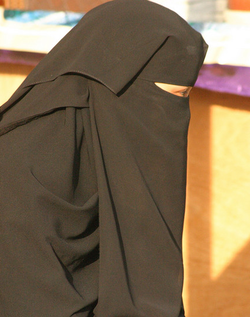
2012 will go down as the first year women of Saudi Arabia were allowed to represent the kingdom in the Olympics. Sarah Attar ran the 800 metres dressed in a hijab and told the BBC: “The door is open... this legacy will really develop the women's spirits to get more active and get involved [in sport]”
It seems now in Saudi Arabia 2012 will also see the beginnings of a women only industrial city. The women's spirits in Saudi Arabia evidently inspired to get more active and involved, in sport and in other matters. Saudi women make up 15% of the workforce and this women only industrial city proposal is following government plans to increase job opportunities for women. The hope is women will take on a greater involvement in the country's development.
The project is expected to create around 5000 jobs in the textile, pharmaceutical and food-processing industries. There are already some women run businesses in Saudi Arabia and plans for a second woman only industrial city are coming to a head.
Does this development herald a victory for the women of Saudi Arabia? Is this positive discrimination at its best? The segregation of women from men in this industrial city follows Sharia law, specifically Wahabi Sharia law. Women are not allowed to drive in Saudi Arabia, however there has been an increase in mixed workplaces.
Al-Rasheed of Modon says the industrial city has been built “for women workers in environment and working conditions consistent with the privacy of women according to Islamic guidelines and regulations”.
There's been a lot of upheaval concerning women and employment in Saudi Arabia, women have recently replaced men in perfume, cosmetics and lingerie shops. In 2015, as announced by King Abdullah in September, women will have the right to vote.
These changes show a recognition not only of the gap in employment of Saudi Arabian female and male graduates, but recognition of female graduates full stop. It also seems to be a way to combat the complaints made by women who claim that private companies have refused to employ married women, or agreed to employ married women on the understanding they are not pregnant. This is in direct violation of the kingdom's workforce regulations.
Unfortunately many western women could claim to identify with this issue of their marriage or fertility being brought up as part of the recruitment process. This too goes against various recruitment regulations and while women only offices or industrial cities are not the Western answer to such issues (which are difficult to prove anyway) it will be interesting to watch this women only industrial city grow. Will it be another grey Dystopialette or, dare I ask (or mangle our language so) Utopialette that realises Mary Wollstonecraft's dream: “I do not wish them [women] to have power over men; but over themselves.”
Squeamish Kate


 RSS Feed
RSS Feed
